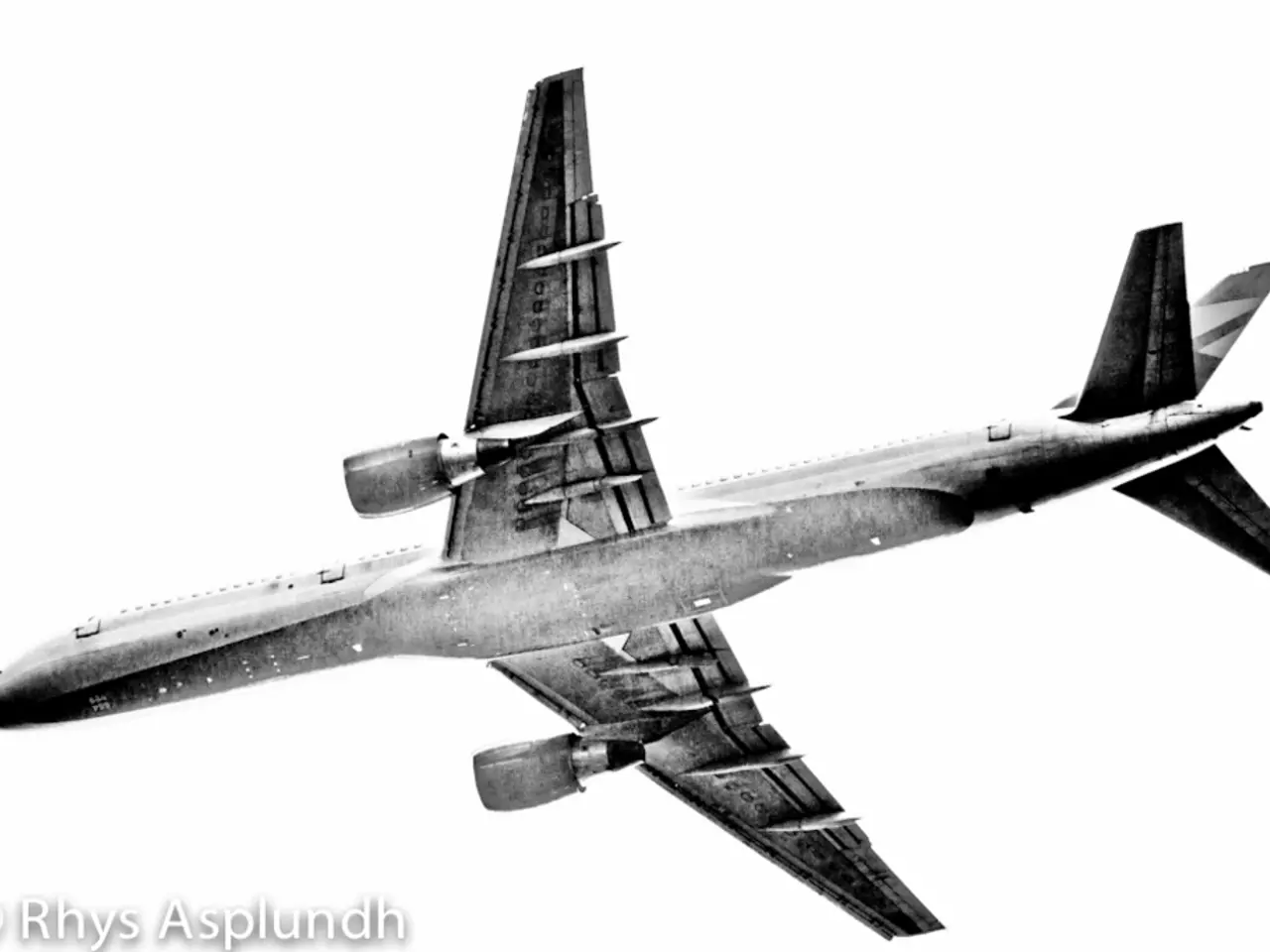Discussion on Irregular Warfare Podcast: The Impact of Emerging Technologies on the Evolution of Human Conflict
==========================================================================================================
In a recent episode of their podcast, hosts Ben Jebb and Adam Darnley-Stuart delve into the transformative effects of emerging technologies on the nature of warfare, with special guests Mick Ryan, a retired Australian Army major general, and Lieutenant General Xavier T. Brunson, commanding general of the US Army's I Corps.
The discussion centres around the impact of technologies like artificial intelligence (AI) and advanced cyber capabilities on militaries' ability to wield mass combat power in future large-scale operations. According to the experts, these technologies will dramatically enhance command and control, accelerate decision-making speed and accuracy, enable networked battlefield autonomy, and strengthen intelligence, surveillance, and reconnaissance (ISR) through deep sensing and data fusion.
These enhancements combine to increase operational tempo, situational awareness, precision, and resilience against enemy actions. Let's explore some key specific ways these advancements will reshape the battlefield:
Accelerated Command and Control (C2) and Decision Support
AI systems can fuse data from multiple intelligence sources and recommend optimal courses of action, helping commanders make thousands of high-quality, rapid decisions—something impossible manually. Initiatives like U.S. initiatives like JADC2 (Joint All-Domain Command and Control) and AI-powered platforms such as the Maven Smart System drastically improve the speed, quality, and accuracy of battlefield decisions while reducing required human personnel.
Networked Autonomy and Mass Proliferation of AI-Enabled Systems
Cheap, AI-enabled autonomous drones and robots working in swarms will transform the battlefield by compressing the sensor-to-shooter timeline to near instantaneous. This reduces safe havens, accelerates engagements, and enables mass deployment of scalable, networked, disposable assets for reconnaissance, attack, and defense. These autonomous systems lower costs and democratize battlefield AI technologies beyond major powers.
Deep Sensing and Multidomain ISR
Advanced AI and machine learning improve intelligence collection, processing, correlation, and dissemination over extended areas and contested environments. Capabilities like the Army’s Multi-Domain Sensing System (MDSS) and HADES provide real-time situational awareness, intelligence advantage, and decision superiority by penetrating anti-access/area denial (A2/AD) defenses remotely and supporting multiple echelons simultaneously.
Cyber and Electronic Warfare Enhancements
AI enhances military cyber capabilities, including improved signal processing, real-time RF signal classification, and adaptive jamming and counter-jamming to disrupt enemy communications and electronic systems. This ability to neutralize adversary electronic threats in complex electromagnetic environments supports dominance in cyber warfare domains.
Data Integration and Rapid Adaptation
AI aids in automating data classification, speeding data flow to algorithms, and accelerating the translation of raw battlefield data into actionable tactics and technological updates. Initiatives like the Navy-Marine AI and data strategy emphasize faster adaptation cycles in wartime by streamlining data management and expanding operational AI integration.
Together, these AI-empowered capabilities enable militaries to achieve unprecedented combat power through faster decision cycles (compressed kill chains), greater operational reach (deep sensing), and scalable force multipliers (autonomous platforms and cyber dominance) in large-scale, multidomain operations. Commanders remain essential to provide ethical oversight and final judgment, but AI reshapes practically every facet of mass combat power in future warfare.
General Ryan is the author of the book, "War Transformed: The Future of Twenty-First Century Great Power Competition and Conflict". The episode aims to provide insights into how leaders should prepare forces for future, large-scale combat operations.
The image used in the article is credited to Steven Stover, US Army. You can share this article on Facebook, Twitter, LinkedIn, or email it to others. The full episode can be listened to below, and you can subscribe to it on Apple Podcasts, Stitcher, TuneIn, Spotify, or your favourite podcast app. You can also print this article for your personal reference.
- The transformative impact of advances in technology, such as artificial intelligence (AI), is set to revolutionize warfare by enhancing command and control, decision-making speed and accuracy, networked battlefield autonomy, and intelligence, surveillance, and reconnaissance (ISR) through deep sensing and data fusion.
- In the realm of cyber warfare, AI can enhance military capabilities by improving signal processing, real-time RF signal classification, and adaptive jamming and counter-jamming to neutralize adversary electronic threats in complex electromagnetic environments.




